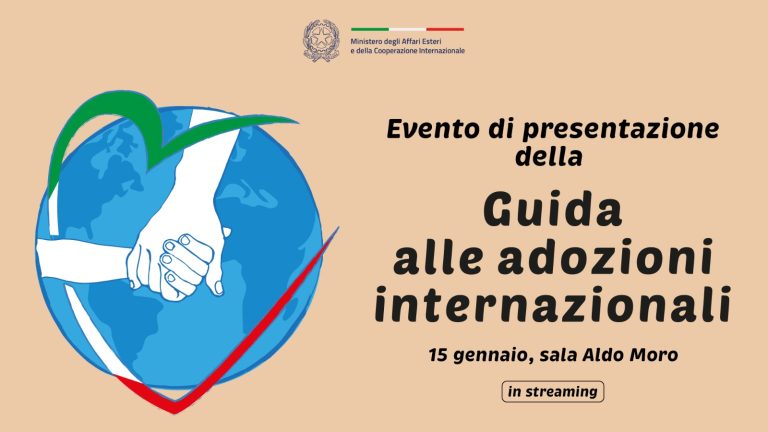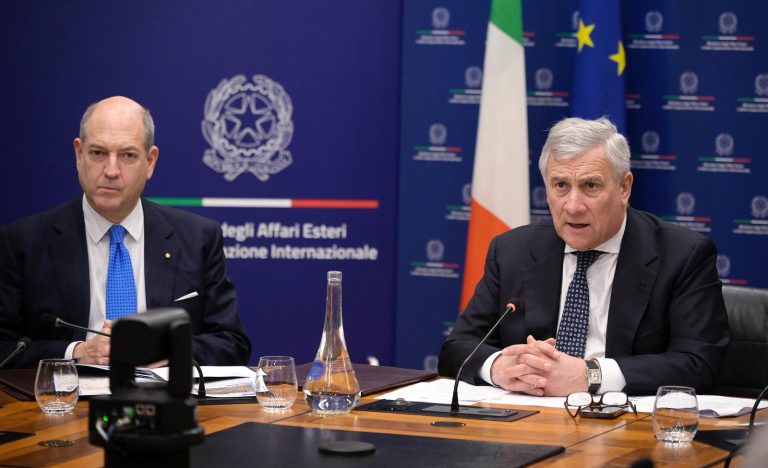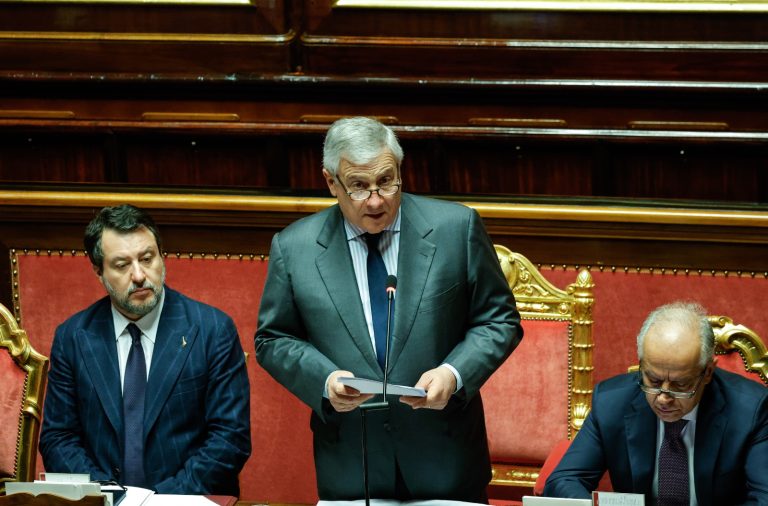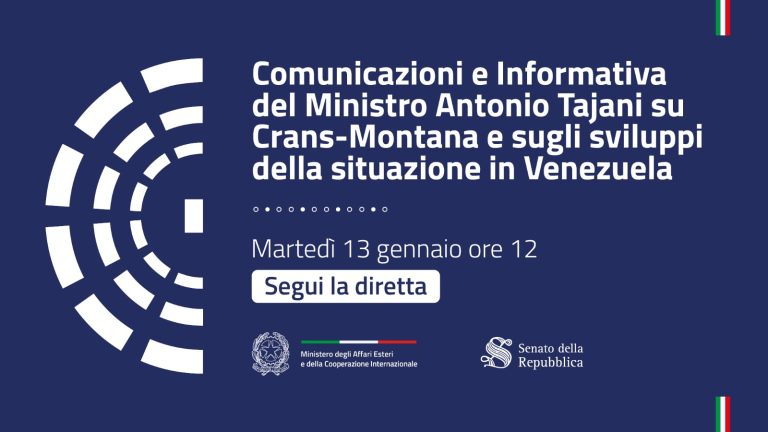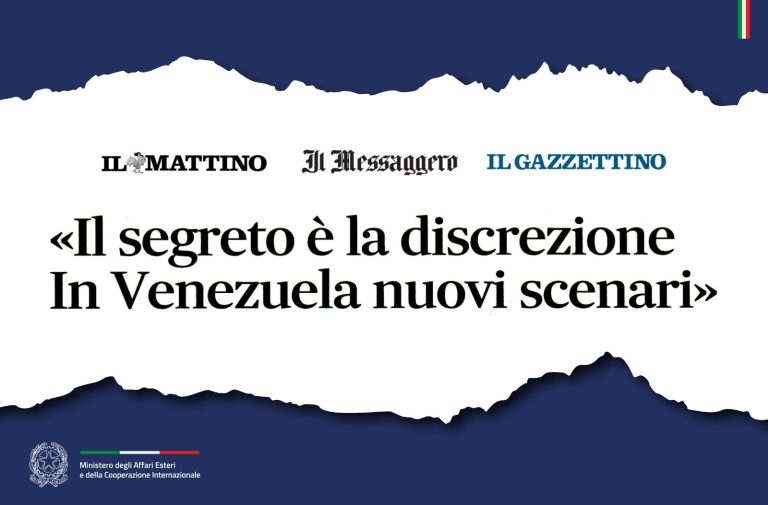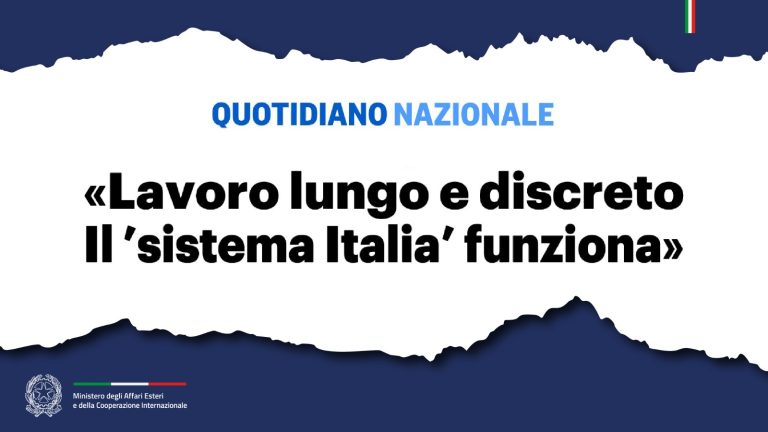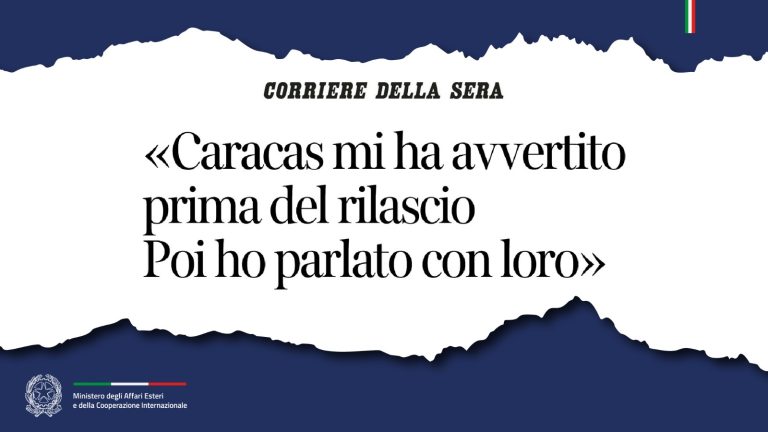Antonio Tajani answers the phone after talking with Israel Katz, the Israeli Minister of Foreign Affairs. It was a busy day: the meeting with the Ambassadors of Arab and Islamic Countries and the online meeting with the EU Ministers of Foreign Affairs. Then, starting tonight, is the G7 Foreign Ministers’ Meeting in Capri.
Minister, what did you say to your Israeli counterpart?
“I explained to him our point of view: Israel obtained an evident success by completely neutralising the unacceptable Iranian attack. I wish they stop now by consolidating this political and military achievement”.
What did Katz reply?
“He listened carefully and explained that he would inform Benjamin Netanyahu about Italy’s standpoint”.
What was your impression after this phone call?
“That the Israelis are still figuring out what to do”.
Are you more optimistic?
“Hard to say, but there are some positive signals”.
Which ones?
“In my phone call with the Minister, I understood that Israel is not indifferent to the G7 requests and, more generally, to the requests from allied Countries. We can see the first results: so far, there has been no reaction against Iran, and they postponed the attack on Rafah. It is too early to say, and anything can happen, but I see a few glimmers.”
However, the Israeli-Iranian logic seems different: striking back.
“The risk is to trigger a regional conflict that might turn into a world conflict in a few weeks. As for Ukraine, Italy doesn’t want to walk blindfolded, as an unaware sleepwalker, towards World War Three”.
Is there a way to stop the escalation?
“If each party deems that the only way to assert their reasons is using military force, we might have to talk with them. Iran is powerful, although not more than Israel, and it risks the destruction of the areas where its allies work, such as Hezbollah in Lebanon and the Houthis in Yemen. On the other hand, Israel must be careful not to undermine its relationship with the US, which, along with Europe, doesn’t want this conflict to enlarge in an uncontrolled manner”.
In your opinion, which role can Italy play?
“In view of the G7 in Apulia, we, as Ministers of Foreign Affairs, will hold several meetings in Capri starting tomorrow night (today, Ed.) to arrange a shared standpoint and, most of all, draft a road map of common political actions to avert the danger of a widespread war in the Middle East. Not even the US, alone, can immediately stop this war: we need to play our small or large role following the Italian tradition of dialoguing with all parties”.
Will you continue your dialogue with Iran?
“Yes. Italy has consolidated diplomatic relations with Iran. Dialogue should be maintained despite this very delicate situation. Yesterday, I met with the Ambassadors of Arab and Islamic Countries, including the Islamic Republic representative, with whom we keep constant contact”.
You talked about “commensurate responses” to Israel’s intervention. Was the response seen in Gaza over the last six months commensurate?
“The Gaza war was the result of Hamas terrorists’ brutal and shameful attack against Israeli civilians. However, a ceasefire is now necessary. Israel must interrupt the military operations which have deeply affected the Palestinian people”.
Is our military contingent on mission in Lebanon at risk?
“There are no particular risks. The situation is clearly tense and constantly monitored, but they are safe. In a phone call last Friday, the Iranian Minister of Foreign Affairs, Hossein Amir-Abdollahian, guaranteed me that there is no intention to endanger their safety. Our interlocutors understand the balance with which they have been acting for years, and they will continue to act to prevent minor acts from turning into more dangerous ones”.
Is there a need to change the UNIFIL (United Nations Interim Force in Lebanon) mission?
“This is not for us to say. But it doesn’t appear to me as a topical issue. A resolution by the UN Security Council would be needed”.
You mentioned deploying Italian soldiers to help a future state of Palestine: in what context?
“In the future, after the end of the Gaza war, we will have to find a way with the UN to guarantee the stability and reconstruction of the Strip and help the Palestinian Authority to become a serious and reliable partner for Israel too. If the UN establishes a new stabilisation and assistance mission, then peacekeeping forces may be needed and Italy could play a role. But not at this stage”.
You are also the Secretary of Forza Italia party. Are you ready to run in the European elections?
“On Saturday, Forza Italia secretariat will be in Rome. I will announce my decision there. I cannot do it here with you”.
Over the last months, talking about the majority leaders, you have said, “Either we all run or none”. But Salvini called himself out. Didn’t you coordinate with the Prime Minister and Deputy Prime Minister?
“Yes, but then everyone made their own choices in the interest of their respective parties. I believe more Italy is needed in Europe, and I am ready to defend this battle by engaging in the election campaign”.
Are the chances of seeing Mario Draghi in the EU leadership increasing?
“I am too familiar with European mechanisms to get trapped in these games that feed the newspapers. You risk spoiling the names”.
In fact, the European People’s Party candidate, Ursula von der Leyen, seems to be having great difficulty.
“The president of the European Commission will not be elected until September, so it is premature to talk about it”.


